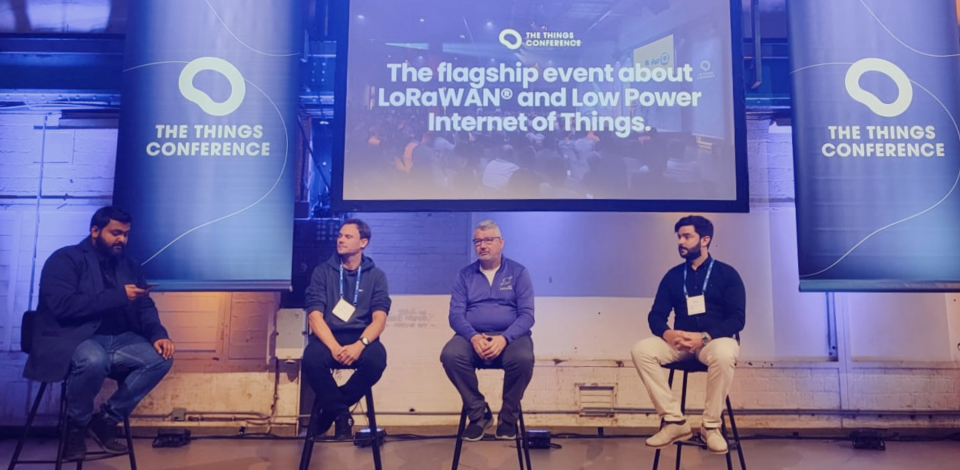
2024-10-08
IoT connectivity reaches remote areas of Portugal after partnership between dstelecom and Lacuna
At dstelecom, our mission has always been clear: to break down digital barriers and guarantee connectivity, especially in less densely populated areas. It is in this spirit that we have established an innovative partnership with Lacuna Space, a global reference company in the Internet of Things (IoT) via satellite. Together, we intend to bring a real technological revolution to these regions, opening up new frontiers in access to connectivity.
This milestone was made official during the ‘The Things Conference’, a leading event for IoT innovations, held in Amsterdam. From this partnership, we will commercialise and promote IoT services in Portugal. As part of the ‘New Space Portugal’ project, funded by the PRR, we have taken on the responsibility of delivering an IoT payload on three satellites. On these satellites, equipped with Lacuna Space's proven technology, gateway capacity will be shared between both companies, expanding global IoT connectivity to previously inaccessible areas in our country.
This partnership marks the beginning of a new phase for both companies, in which we intend to leverage IoT solutions ranging from monitoring the Atlantic Ocean to remote asset management. We are ready to make a significant impact on the Portuguese technology scene, putting our country at the forefront of innovation.
Since 2008, our main goal has been to eliminate geographical barriers, ensuring that all Portuguese - from the coast to the interior - have access to telecommunications services with state-of-the-art technology. Our fibre-optic network already covers around 900,000 homes and reaches more than 145 municipalities throughout Portugal. However, we recognise that there are cases where implementing fibre optics is not feasible. This is precisely where our satellite network, in partnership with Lacuna Space, comes in. This solution will allow us to bring connectivity to the most remote regions, both by land and sea, and pave the way for new innovations.
This is not our first experiment with satellite technology. In the first half of 2024, we launched an IoT payload, developed internally, which is currently operating on the MH-1 satellite, the second Portuguese mission ever launched. However, to ensure effective commercial expansion, it was essential to choose a partner with proven technology.
Ricardo Salgado, CEO of dstelecom, emphasises the importance of the partnership: ‘At dstelecom, we build and manage the first open access FTTH network in Portugal. Our goal is to provide connectivity to people everywhere: by land, air, sea and now space. In 2024, we launched an IoT payload, developed internally, which is operating on Portugal's second mission, the MH-1 satellite. It's time to take the next step. The partnership with Lacuna Space is a natural step forward in this evolution. It is an innovative and crucial company with a proven track record in commercial operations. Their expertise will allow us to quickly reach commercial implementation. We are very excited about this new partnership.’
For Lacuna Space, Rob Spurrett, the company's CEO, recalls their presentation at the 2019 TheThings Conference, where they introduced the concept of launching satellite gateways on collaborative missions to expand the Lacuna Network. Spurrett explains: ‘The cost of capital investment is high in space missions, so it's critical to form partnerships to spread those costs and bring in local operators with an existing user base, so we can continue to keep subscriber costs on par with terrestrial services. It has taken a long time for these network partnerships to materialise, but we have signed several recently and others are being planned.’